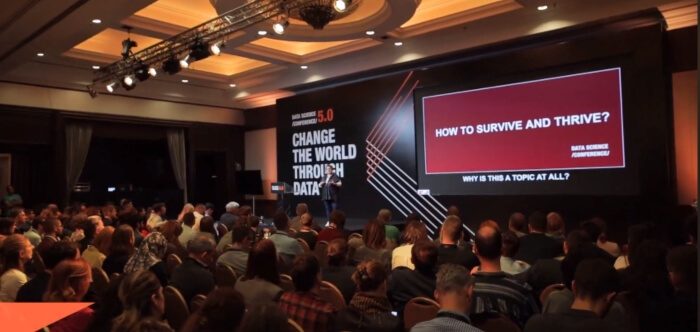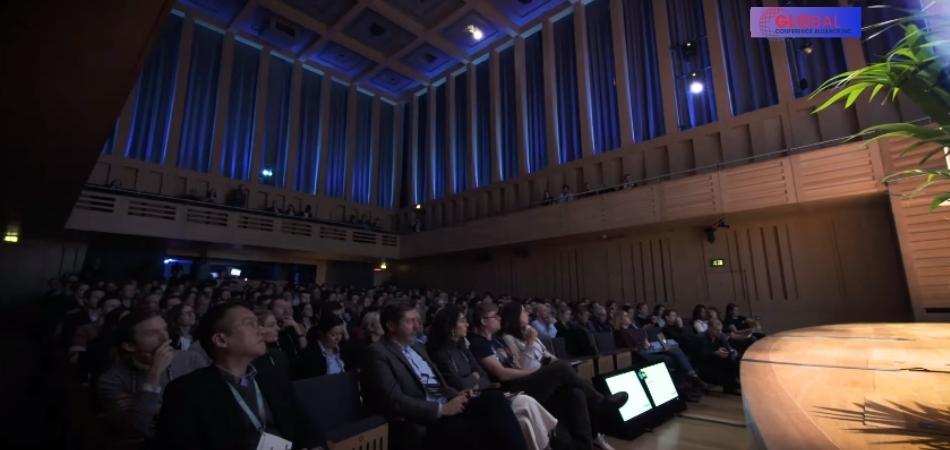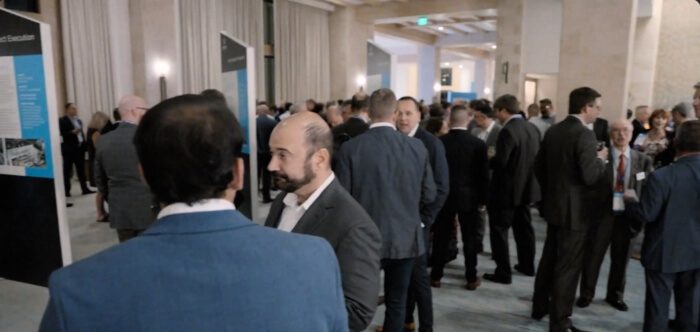Experiencing a professional conference circuit can often be exciting and filled with hopes, but an event that looks excellent might quickly turn into a miserable one. An event’s weak presentations, scant networking opportunities, or a mismatch between the event’s concept and substance are usually the main causes of pain points. So, how do you know if a conference is good or bad?
A conference’s quality can be determined by evaluating factors such as post-event comments, speaker expertise, attendee engagement, networking possibilities, and topic relevancy. While a poor conference falls short in these areas, a good one offers insightful conversations and meaningful connections.
Come explore with us as we go deeper, giving you a solid foundation to determine whether your next professional gathering is worthwhile and guaranteeing that your time and effort will provide insightful information and relationships.
Exactly What Does the Term Conference Mean?
The landscape of modern conferences is rapidly changing, continually seeking to engage attendees in unique and meaningful ways. This event promises not just presentations, but an immersive learning experience for everyone present. By intertwining expert-led sessions with innovative networking opportunities, the conference aims to redefine professional gatherings.
Basically, attending education conferences allows diverse voices from various industries to take center stage, offering fresh perspectives on pressing contemporary issues. Coupled with state-of-the-art technology, these discussions promise to be both enlightening and interactive. Attendees can expect a seamless blend of education, collaboration, and hands-on experiences throughout.
Moreover, the selection of topics has been meticulously curated to ensure relevance and applicability in today’s dynamic professional landscape. Such meticulous planning underscores the commitment to delivering value. In essence, this conference promises not just information but transformation for its attendees.
Importance of Attending Conferences
Gaining information, networking, and constant improvement are necessary for managing the professional field. Conferences are significant occasions that frequently promote these essential components. One’s professional path can be altered by realizing their significance.
Broadening Knowledge Horizons
Conferences present a unique blend of experts, sharing their latest findings and innovations. This amalgamation of expertise ensures attendees leave with expanded knowledge. Such exposure is invaluable in keeping pace with evolving industries.
Networking and Collaborations
Engaging with like-minded professionals can open myriad opportunities. Conferences become arenas for fruitful collaborations and connections. Such interactions often lead to lasting professional relationships and future partnerships.
Skill Enhancement and Training
Many conferences offer hands-on workshops and training sessions. These focused environments foster skill acquisition and refinement. Participants can immediately apply these skills, optimizing their professional output.
Staying Ahead of Trends
With industries constantly evolving, staying updated is paramount. Conferences spotlight emerging trends, tools, and technologies. Being privy to these insights ensures professionals remain ahead in their respective fields.
Personal and Professional Growth
Beyond the tangible benefits, conferences catalyze personal development. They challenge perspectives, inspire new ideas, and invigorate motivation. This blend of personal and professional growth propels careers forward.
Conferences aren’t just events; they’re transformative experiences. The insights gained and connections made can significantly shape one’s professional journey. Embracing these opportunities can be the key to unlocking unprecedented career growth.
How Do You Know If a Conference Is Good or Bad?
Assessing the value of a conference is critical for professionals investing time and resources. A good conference can boost one’s career, while a poor one can waste valuable time. Knowing how to differentiate is key.
Step-1. Analyze Pre-Event Information
Carefully review the agenda, speakers, and event details beforehand. A well-structured agenda and reputable speakers indicate thorough planning. Such preliminary information often reflects the event’s overall quality.
Step-2. Gauge Topic Relevancy
Ensure the conference’s theme aligns with current industry trends and personal interests. A relevant topic attracts passionate professionals and experts. Outdated subjects might hint at a conference’s diminishing value.
Step-3. Review Speaker Credentials
Investigate the expertise and credibility of the invited speakers. Renowned industry leaders promise valuable insights and discussions. The presence of respected figures is a good conference hallmark.
Step-4. Check Networking Opportunities
A conference should promote interaction among attendees. Opportunities like breakout sessions, networking events, and panel Q&As foster collaboration. Limited chances to interact can signal a less valuable event.
Step-5. Assess Attendee Engagement
High levels of participation, active Q&A sessions, and attendee feedback are positive signs. Engaged audiences often indicate captivating content and delivery. A passive audience may suggest the opposite.
Step-6. Evaluate Post-Event Feedback
Once concluded, reviews and comments can provide a conference’s true picture. Positive testimonials and constructive feedback underscore the event’s success. Negative reviews can provide areas of improvement or reasons to avoid future editions.
Step-7. Reflect on Personal Takeaways
Evaluate your personal growth and acquired knowledge. A beneficial conference should leave attendees with actionable insights. If you depart without new information or contacts, its value might be questionable.
Distinguishing between a beneficial and lackluster conference is essential. These seven steps offer a structured approach, ensuring professionals make informed decisions about which events to attend and which to skip.
Do Bad Conferences Affect Our Personal Growth?
Bad conferences can indeed impact our personal growth in various ways. These events, which fail to deliver valuable content and networking opportunities, can hinder rather than enhance our professional development. Here’s how:
Wasted Time and Resources
Attending a subpar conference can be a waste of valuable time and resources. Travel expenses, registration fees, and time away from work can all add up. When a conference fails to deliver meaningful insights or connections, it can leave you feeling unfulfilled and frustrated.
Missed Learning Opportunities
A poorly organized conference may lack engaging speakers or relevant topics. As a result, you miss out on opportunities to expand your knowledge, gain fresh perspectives, and stay updated on industry trends. This stagnation can hinder your personal growth and professional development.
Negative Networking Impact
Networking is a significant aspect of conferences, but bad ones can leave you with unproductive or even detrimental connections. Associating with the wrong individuals or organizations can hinder your growth by limiting your exposure to valuable contacts and opportunities.
Diminished Motivation
Experiencing a bad conference can dampen your enthusiasm and motivation. It can lead to feelings of disillusionment, making it harder to stay committed to your personal and professional growth goals.
Reinforcement of Bad Practices
In some cases, subpar conferences may promote or reinforce bad practices within your field. If you’re exposed to outdated or unethical ideas, it can hinder your progress by steering you in the wrong direction.
Missed Personal Growth Opportunities
Bad conferences can hamper your personal growth by robbing you of the chance to learn, connect, and be inspired. To maximize your growth potential, it’s essential to carefully select conferences that align with your goals and provide value.
Attending bad conferences can hold back our personal growth by wasting time, missing learning chances, and creating negative networking experiences. To grow effectively, choose conferences wisely for valuable experiences.
Tips for Informed Decision-Making
Informed decision-making is the cornerstone of successful endeavors, both personally and professionally. Harnessing the power of accurate information and critical analysis is essential. Here are ten tips to enhance your decision-making prowess.
- Clear Objectives: Begin with a clear understanding of what you hope to achieve. Decisions aligned with well-defined goals often yield better outcomes.
- Research Thoroughly: Dive deep into available data and insights. Comprehensive research minimizes risks and maximizes informed choices.
- Consider Alternatives: Always explore multiple options. Evaluating various paths aids in identifying the most suitable choice.
- Seek Expert Opinions: Lean on individuals with expertise in the relevant area. Their insights can provide unique perspectives, enhancing decision quality.
- Weigh Pros and Cons: For every option, list potential benefits and drawbacks. This systematic approach offers clarity on possible outcomes.
- Trust Instincts, but Verify: Gut feelings can be powerful, but always cross-check them. Ensure your instincts align with the gathered information.
- Avoid Analysis Paralysis: While research is essential, don’t get bogged down. At some point, you must act, even with limited data.
- Learn from Mistakes: Every decision won’t be perfect. Embrace errors as learning opportunities, refining future decision-making processes.
- Stay Updated: Continuously update your knowledge base. Staying current ensures decisions are relevant to ever-evolving scenarios.
- Re-evaluate Periodically: Circumstances change; regularly reassess decisions to ensure they remain optimal. Adapting to new information is vital for success.
Decision-making is a blend of art and science. By integrating these tips into your process, you can navigate complexities more effectively and make choices that propel you forward.
Bottom Line
Making a decision on “How do you know if a conference is good or bad?” is an essential part of career development. Conferences are opportunities for learning, networking, and expanding perspectives; they are more than just events. The true worth of a conference lies not just in its material but also in the relationships and life-changing experiences it creates.
A systematic approach is necessary for conference evaluation. Every aspect can provide valuable insights, from assessing pre-event data to measuring attendee engagement and post-event comments. The intangibles, such as the caliber of networking and individual takeaways, are just as important as the tangibles. As you step forward in your professional journey, let these principles guide you. Choose conferences that not only inform but also inspire, ensuring your time and effort are well-invested.








